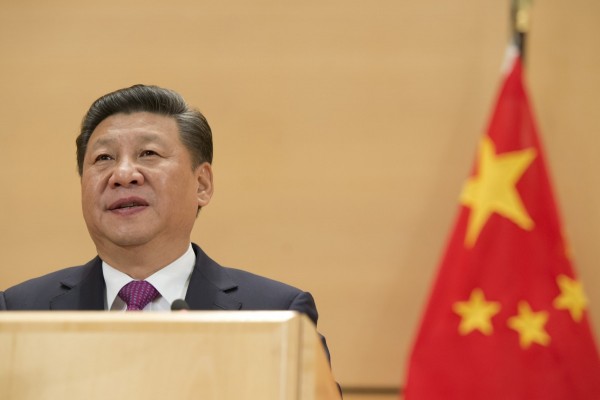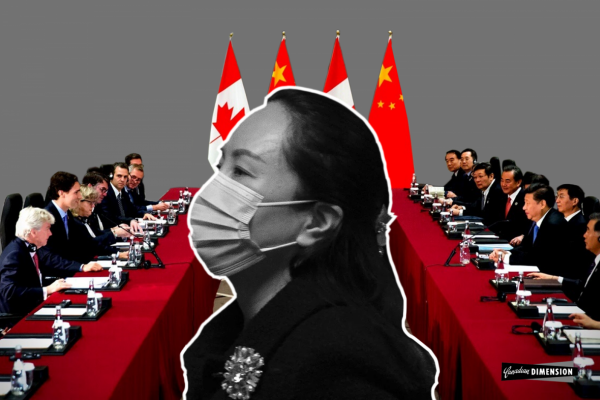We need statesmanship, not politics, to end Ukraine war
Political leaders are unwilling to face the realities on the ground

Minister of Defence Anita Anand, Prime Minister Justin Trudeau, and Foreign Affairs Minister Mélanie Joly at the 2022 NATO Summit in Madrid, Spain. Photo from Twitter.
As a military historian I am always seeing parallels between past events and those taking place today, including the war in Ukraine. Parallels between the past and present can never be perfect—there are always meaningful differences. However, that doesn’t mean that parallels cannot help inform us about the present.
A CBC piece published on Sunday, February 26 certainly set in motion thoughts on the similarity and difference between past events and the present. In response to recent Chinese peace proposals for Ukraine that would likely not offer either side the ‘victory’ they crave, Canada’s Foreign Affairs Minister Mélanie Joly argued for continuing the war, stating that, “We’re all in favour of talking about peace, but if China really wants peace, it needs to say to Russia to get out of Ukraine.”
First of all, for Russia to simply ‘get out of Ukraine’—including one assumes all of Donetsk, Luhansk and Crimea—would mean total Western ‘victory.’ Such talk is not meaningful diplomacy. If there were reasonable prospects for a total Ukrainian ‘victory’ then these statements might have some justification, but the chances of a full Russian withdrawal are exceedingly low. Russia may not be the great power that is was, but it is still a major regional power. At the same time, it is arguably not in China’s geopolitical interests to see Russia defeated. Such realities do not however deter Joly from calling for a continuation of what is increasingly mindless slaughter.
According to the foreign minister, “Everything that is going on on the battlefield will have an impact afterwards at the negotiation table. And so the more we’re able to help Ukraine defend itself, the more we will be able to put Ukraine in a strong position when it comes to negotiate peace.”
We’ve heard this sort of talk before in a situation sufficiently similar to warrant comparison. At the beginning of the Korean War of 1950-1953 there was a lot of movement of the frontline as the North Koreans, then the South, gained the upper hand—before Chinese intervention saw the South pushed back into central Korea. For much of the war the fighting settled down into a relative stalemate as Chinese-supported North Korean forces slogged it out against South Korean forces with their US and other allies, including Canadian troops. Armistice negotiations began in 1951, but didn’t bear fruit until 1953. The North Korean side may have lacked some of the technological capabilities of its opponent—and even some of the tactical and operational finesse that the US-led side was capable of—but it was sufficiently militarily effective and at the same time had a numerical superiority to be effectively undefeatable with the resources arrayed against it. In the Korean example there was a genuine possibility that the US would use nuclear weapons to try to end the deadlock, but calmer heads ultimately prevailed.
The situation in Ukraine is undoubtedly similar in some meaningful ways. Without the sort of escalation that could bring Europe to the brink of a nuclear war (with, for example, the commitment of NATO troops to the fighting) Ukraine is unlikely to have the strength to dislodge Russian forces. Yes, all the Western arms being poured into Ukraine at the moment may allow the Ukrainian side to gain some ground, but any success is likely to be countered by a Russian escalation—possibly with support from a China that cannot afford to see Russia lose.
The reasons why the war in Korea dragged on for as long as it did certainly involved the usual suspects in such circumstances: hubris, arrogance and the egos of senior political leaders who could sit back and direct a war in which their lives were not at risk in the hope they wouldn’t have to face a climbdown. The same is now true of the war in Ukraine. Political leaders are unwilling to face the realities on the ground and accept they are not going to be able to claim their side achieved all of its war aims.
Rather than eat some humble pie and break ranks with their equally deluded colleagues both at home and abroad, politicians like Joly would rather watch tens of thousands more be killed and wounded in fighting that is unlikely to fundamentally change the ultimate outcome of any future negotiations. It is the moral duty of those of us on the left in Canada to try to help them see sense.
Professor Alexander Hill teaches at the University of Calgary, and is a leading expert on the military and political history of Russia and the Soviet Union since 1917.










